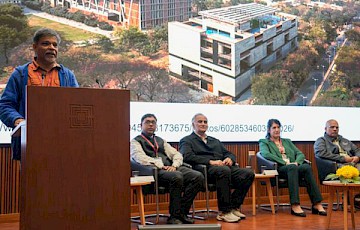24 February 2021
Snigdha Khuntia Receives Funding from the Department of Science and Technology for Research on Removal of Trace Pollutants

Snigdha Khuntia, Assistant Professor, School of Engineering and Applied Science, received three-year funding from the Department of Science and Technology for her research on Synthesis of Magnetic Catalyst Coated Microbubbles for Removal of Trace Pollutants. India sustains a whopping 16.8 per cent of the world population and has a huge requirement for pharmaceuticals and personal care products (PPCPs). With such huge demand, unused and untreated pharmaceuticals have become one of the recent threats in municipal wastewater treatment plants. Studies have reported that urban wastewaters are the most important source of pharmaceutical compounds in the aquatic environment. The available wastewater treatment plants (WWTPs) are designed to remove organic pollutants, mainly estimated as dissolved organic matter, solids, and nutrients but not pharmaceutical compounds. In addition, most WWTPs are only designed for primary and secondary treatment processes and do not show promising results in removing PPCPs found in trace amounts. Therefore, growing attention has been paid to removing PPCPs due to their potential ecotoxicity in the past few years.
Professor Khuntia said, "Ozonation is considered one of the promising technologies as many laboratory and pilot-scale studies revealed that it could effectively remove a variety of PPCPs. Metal-based homogeneous or heterogeneous catalysts have been used adequately to enhance the oxidation process. However, the release of secondary pollutants from catalysts and complexity in catalyst In this project, we propose to use magnetic (iron-based) catalyst-coated ozone microbubbles. Formulating microbubbles of O3 enhances the dissolution of O3 by increasing the mass transfer area for O3 dissolution and increases the rate of pollutant oxidation by enhancing the formation of ROS. The use of magnetic catalysts helps easily retrieve catalysts after use from water."



